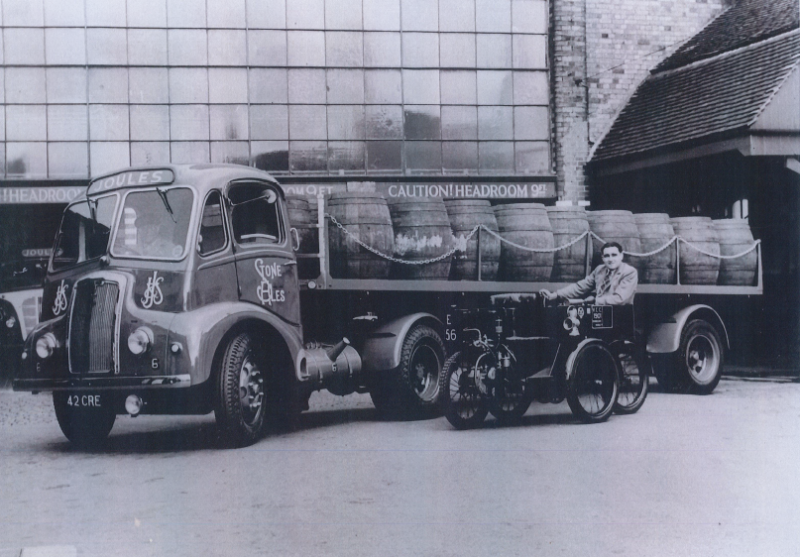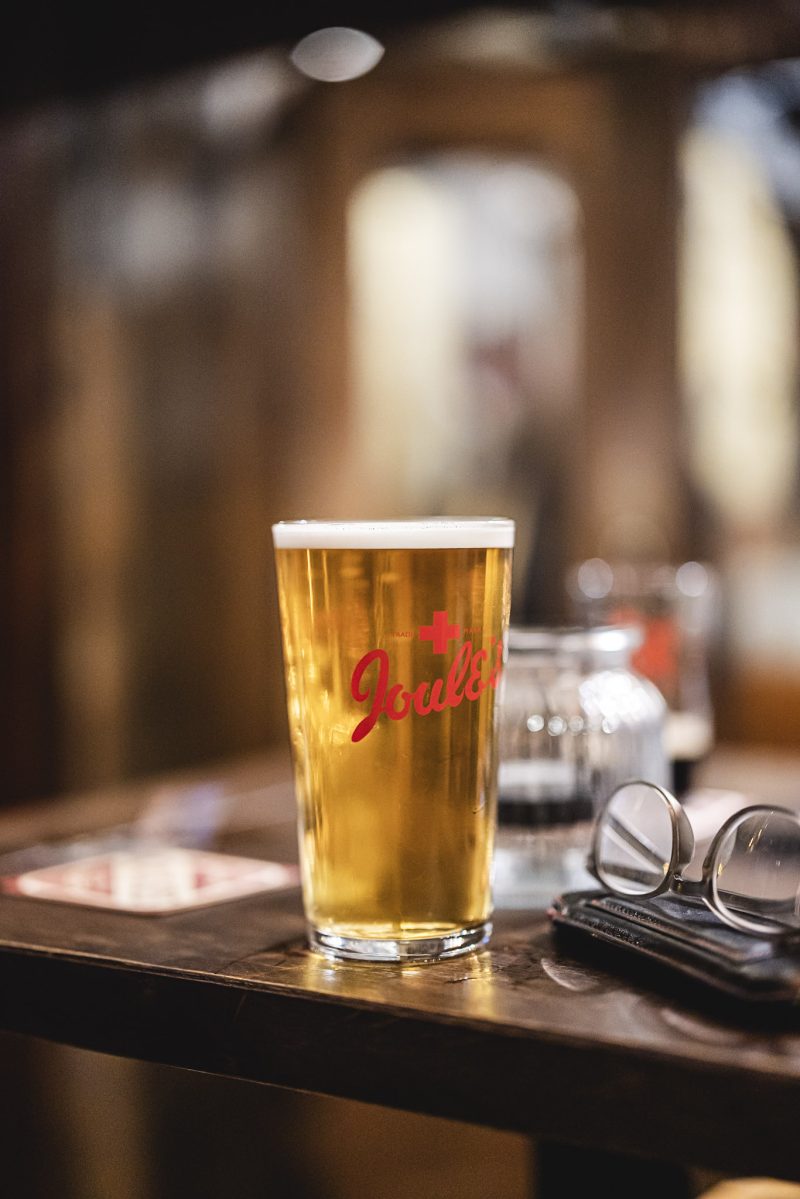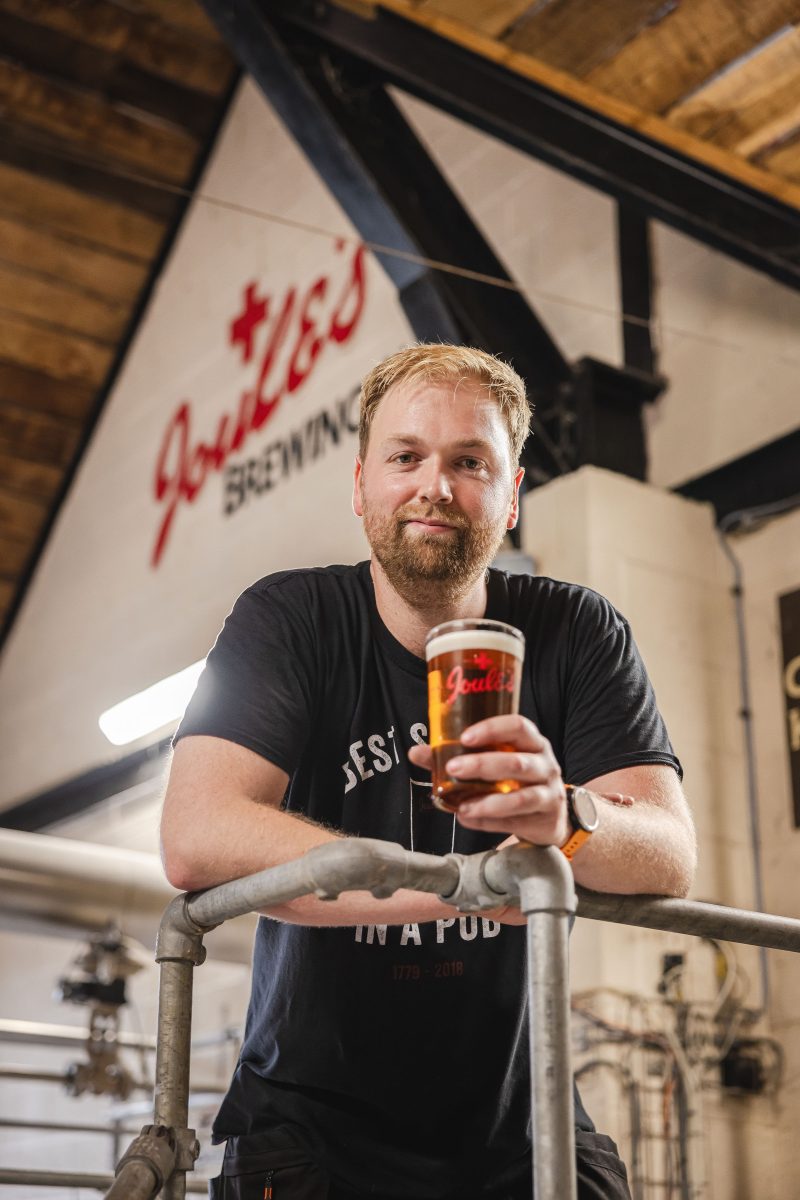Fifty years ago, on October 31, 1974, at exactly 9:50 p.m., the last call was made at Joule’s Brewery in Stone. The doors closed, the final cask was brewed, and an era that had built a community around the craft of beer came to an end. The brewery that once defined a town—centuries in the making—was gone.
The closure of the Joule’s Brewery in Stone didn’t just signify the end of a building; it marked the end of over 200 Joule’s pubs that were connected to it. For the town of Stone, it was not just beer that had been brewed; it was a rich tapestry of tradition, and laughter that filled the air along with the aroma of malt wafting from the morning brew. Joule’s was not just a drink; it was a way of life.
Fast forward fifty years, and Joule’s is rebuilding, innovating, and thriving in Market Drayton, a site carefully chosen for its access to pure mineral water drawn from the same aquifer that nourished the original Stone Brewery. The new facility, just one-twentieth the size of its predecessor, embraces the spirit of craftsmanship and community, committed to using local materials in our Taphouses. This year marks five decades since that pivotal moment in our history, and we believe it’s time to reflect on how far we’ve come.
Joule’s story dates back to the 16th century in Stone, Staffordshire, where the art of brewing was first embraced by Augustinian monks at the priory by the canal. They blessed each barrel with a red cross, signifying its superior quality—a tradition that John Joule skillfully adopted when he registered this iconic trademark in 1867.
Despite a long-standing legacy of success, Joule’s faced a tumultuous relationship with Bass in the 20th century. After years of brewing excellence and numerous awards, Bass Charrington ruthlessly acquired Joule’s, leading to the closure of the Stone Brewery in 1974. This act left the loyal workforce without jobs and ignited a local outcry, with CAMRA leading protests against Bass’s actions.

Joule's Dray and Director's Sidecar 'Sunbeam'

CAMRA Protest Agianst Joule's Closure

Joule's Brewery Demolished
From the monks who started it all to our reestablishment in Market Drayton in 2010, Joule’s has always been about more than just beer. It embodies heritage, craftsmanship, and the communities that have supported us along the way. In 2017, we became fully independent once again, reclaiming our iconic Red Cross trademark—the world’s sixth-oldest beer trademark—and reaffirming our commitment to brewing great beer without compromise.
Today, we take pride in our journey and everything we’ve built since those early days. Our pubs and brewery reflect our dedication to quality and tradition while embracing modern brewing techniques and innovative ideas. With 44 pubs in our estate, stretching across Shropshire, Staffordshire, Cheshire, and Wales, we proudly brew over 5,800 barrels per year— that’s just over 1.5 million pints! We are currently undergoing an expansion as part of our ambitious £1 million development plan, enhancing our brewing operations, increasing capacity, and integrating new community spaces. This investment will see the addition of more maturation vessels and essential infrastructure, ensuring we can continue to meet the growing demand for our beloved craft lager, Green Monkey.

On October 31, 2024, we invite everyone to join us at Crown Wharf in Stone. We’ll be hosting an afternoon of stories, beer, and memories starting at 1 p.m.
There will be archive materials on display, showcasing Joule’s rich history, along with opportunities to share your own stories and connections with Joule’s history. Whether you’ve been with us since the Stone days or discovered Joule’s more recently, this is a moment to come together and celebrate our present and future.
At 9:50 p.m., we’ll ring the bell to mark exactly fifty years since that final call in Stone—not as a farewell to the past, but as a celebration of our present and the promising future ahead.
Join us on October 31, 2024, from 1 p.m. at Crown Wharf, to raise a glass to the journey. Here’s to 50 years of progress, resilience, and great beer—and many more to come.

